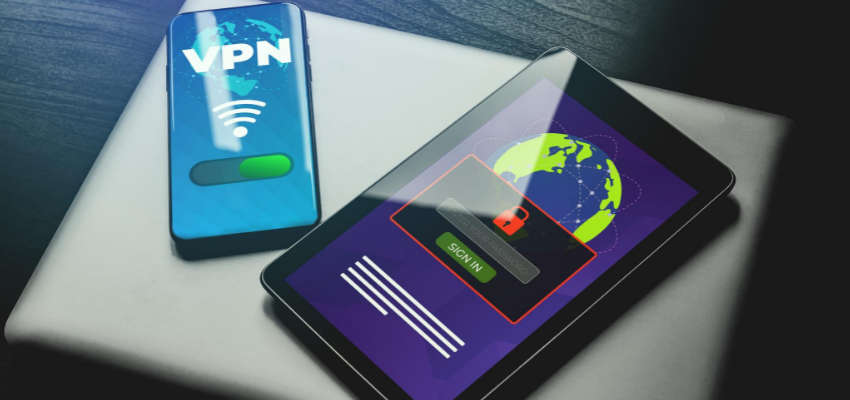Show:
Ultimate Guide to the Role of VPNs in Safe Internet Use
The importance of online safety cannot be overstated. Every click, search, and interaction on the internet leaves a trail, often susceptible to prying eyes or malicious intent. Virtual Private Networks (VPNs) have emerged as a powerful solution to safeguard privacy and secure online activities. Acting as a shield between your device and the vast web, VPNs encrypt data, mask your IP address, and offer anonymity. This guide explores the essential role VPNs play in ensuring a safe and secure internet experience.

The Technology Behind the Security
Understanding how VPNs function helps us appreciate their value. At its core, a VPN creates an encrypted “tunnel” between your device and the internet. Instead of your internet traffic going directly to the websites you visit, it is routed through a secure server operated by the VPN provider. This process not only encrypts your data but also assigns your connection a new IP address, making your online identity virtually untraceable. These two factors—encryption and IP masking—are the cornerstones of VPN technology, ensuring that your data remains private and protected from cyber threats.
The Privacy Advantage of VPNs
In an increasingly connected world, maintaining privacy online is a growing concern. Every time you access the internet, your activities, location, and personal data are potentially visible to advertisers, internet service providers (ISPs), and cybercriminals. However, with a VPN, your online actions are encrypted and your IP address is masked, significantly enhancing your privacy. This means your browsing history remains hidden, your sensitive information stays protected, and your location is kept private. Even on unsecured public Wi-Fi networks, a VPN ensures that prying eyes cannot intercept your data. By routing your connection through secure servers, VPNs provide a crucial layer of anonymity, empowering users to navigate the digital world without fear of surveillance or tracking.
Accessing Global Content Safely
VPNs are invaluable for bypassing geo-restrictions and censorship. Streaming platforms, websites, and even some social media sites limit access to content based on geographic location. A VPN enables you to connect to servers in different countries, making it appear as though you’re accessing the internet from another region. This capability not only broadens your access to global content but also safeguards against oppressive internet restrictions in certain countries. However, users must remain mindful of the ethical and legal implications of bypassing restrictions.
Enhancing Security on Public Wi-Fi Networks
Public Wi-Fi networks are undeniably convenient, providing easy access to the internet in places like cafés, airports, and hotels. However, they are also notorious for their vulnerability to cyberattacks due to often lacking robust security measures. This leaves users exposed to threats such as man-in-the-middle attacks, where hackers intercept data being transmitted between a user and the network. VPNs offer a vital solution by encrypting your internet connection, even on these insecure networks.
With a VPN, your data becomes unreadable to unauthorized parties, ensuring that sensitive information like passwords, financial details, and personal communications remain secure. Whether working remotely, browsing casually, or conducting financial transactions, a VPN offers peace of mind against hackers lurking on public networks.

VPNs and Business Security
As remote work becomes the norm, businesses face the challenge of securing data across diverse locations. VPNs have become an indispensable tool for companies, allowing employees to securely access corporate networks from anywhere. By encrypting connections, VPNs prevent unauthorized access and ensure that sensitive business information remains confidential. For remote workers, a VPN not only protects personal privacy but also contributes to the overall cybersecurity framework of their organization.
Overcoming ISP Throttling for a Better Experience
Internet Service Providers (ISPs) often engage in throttling, deliberately slowing down your connection speed based on specific activities like streaming or gaming. VPNs help combat this issue by masking your online activity. Since the ISP cannot see what you’re doing, it cannot selectively throttle your connection. This leads to a smoother, more consistent internet experience, whether you’re binge-watching your favorite show or participating in an online gaming session.
Safeguarding Against Surveillance and Data Tracking
Surveillance and data tracking are pervasive today. Governments, corporations, and advertising networks often monitor online behavior for various purposes, from targeted advertising to data collection. A VPN protects against this by hiding your browsing habits and location. While it doesn’t make you completely anonymous, it significantly reduces your online visibility, ensuring a more private internet experience free from intrusive tracking.
Choosing the Right VPN
Not all VPNs are created equal, and selecting the right one is crucial to maximizing security and performance. Key features to consider include strong encryption protocols, a no-logs policy, and a wide range of server locations. Additionally, look for VPNs that offer a kill switch, which automatically disconnects your internet if the VPN connection drops, preventing accidental exposure. User-friendly interfaces and responsive customer support are also important factors to enhance your experience.
Debunking Common Myths About VPNs
Despite their growing popularity, VPNs are often misunderstood. A common misconception is that they guarantee complete anonymity. While VPNs enhance privacy, they cannot fully eliminate your digital footprint. Another myth is that all VPNs slow down internet speed significantly. Reputable VPN providers invest in high-speed servers, minimizing the impact on performance. Understanding these nuances helps users make informed decisions and avoid unrealistic expectations about what a VPN can achieve.
The Role of VPNs in the Future of Internet Security
As technology evolves, so do the threats to online security. VPNs are expected to play an increasingly vital role in safeguarding users from emerging cyber risks. The integration of advanced features like split tunneling and multi-hop connections will further enhance their effectiveness. Additionally, as awareness of privacy concerns grows, more individuals and businesses are likely to adopt VPNs as a standard tool for internet safety. This evolution underscores the enduring relevance of VPNs in creating a secure digital future.
In a world where cyber threats and privacy breaches are becoming more sophisticated, the role of VPNs in ensuring safe internet use is indispensable. From protecting personal data to enabling unrestricted access to global content, VPNs provide a comprehensive solution for online security. By understanding their benefits and capabilities, users can make informed decisions about incorporating VPNs into their digital lives. Whether you’re a casual browser, a remote worker, or a frequent traveler, investing in a reliable VPN is a proactive step toward a safer, more private online experience.

 Return to Previous Page
Return to Previous Page








